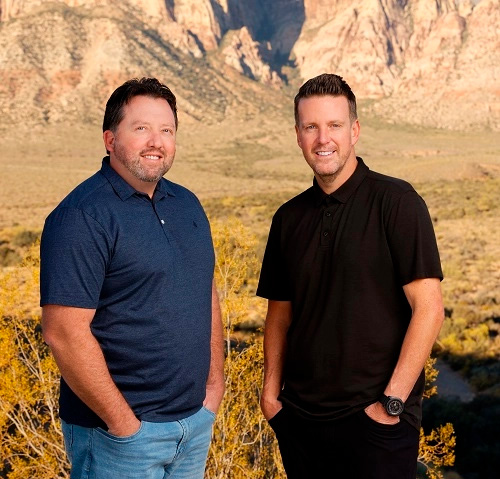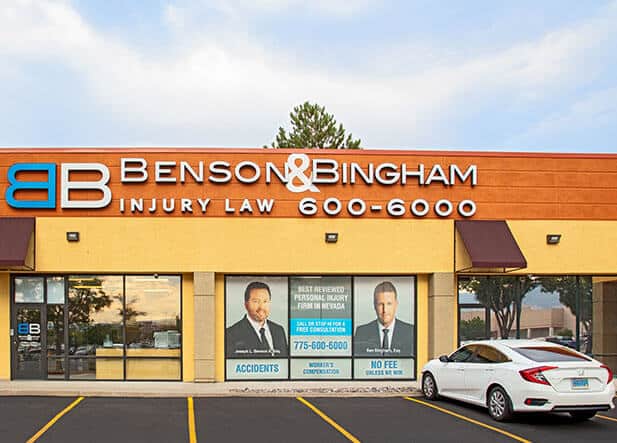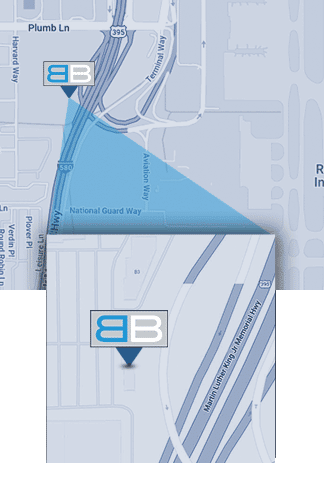Leading Workers’ Compensation Law Firm Near You
Were You Injured In A Workplace Accident? Follow These Easy Steps:
Each day, thousands of Reno workers show up at their place of employment and work hard to keep tourism and other industries alive. However, sometimes these workers become injured on the job. When this happens, they turn to the Nevada Workers’ Compensation program. If you’re suffering from a workplace injury and need compensation for your medical expenses and lost wages, a Reno Workers’ Compensation Lawyer can help you understand the process. Additionally, if your case requires more specialized legal intervention, consider contacting an Injury law firm in Reno for comprehensive support and representation.
Immediately Report The Injury To Your Employer
Immediately after being injured, it is important to report the injury to your employer. Go directly to your supervisor to provide all the information needed for them to file a thorough report. Include the date and time of the injury, the names of any witnesses or people involved, and how the injury occurred.


Seek Medical Care Authorized By Your Employer’s Insurance Company
Whether you feel it is necessary or not, seeking medical care as soon as possible following the injury is one of the best ways to get the compensation you deserve. A thorough medical evaluation and a treatment plan will go a long way in assisting your lawyer with the case.
Contact Our Reno Workers’ Comp Lawyers For A Free Case Consultation
Most workmans’ comp lawyers in Reno offer a totally free initial case consultation where you can discuss the details of the situation and learn about the legal options available to you without being pressured to hire their services. Benson & Bingham will determine if you have a valid case and how to move forward.


File A C-1 Form For Your Employer & A C-4 Form To Begin With The Workers’ Compensation Claim
When filing workmans comp claims, it is vital that the correct process is followed to ensure the claim is processed quickly. Forms C-1 and C-4 provide authorization for medical examination and treatment, which guarantees payment to the medical provider for your care. Let our Reno workers’ comp attorneys help you complete the forms correctly.
Determine A Fair Settlement For Your Injuries If Your C-1 & C-4 Forms Are Denied
Your workers’ compensation claim will not proceed until the proper forms are completed by your physician within 3 days of treatment. If the claim is denied, you will need the help of a Reno workers’ compensation law firm to ensure you still get the compensation you are fighting to receive.


Mediate & Negotiate To Resolve The Workers’ Comp Claim
With the help of an experienced law firm like Benson & Bingham Accident Injury Lawyers, LLC, you will be able to rest and recuperate from your injuries while our legal team fights on your behalf for the compensation you need. We make sure all factors are considered as we negotiate for a fair settlement.
Schedule A Free Case Evaluation With Our Work Injury Lawyers
Why Hire Our Reno Work Accident Attorneys?
We’ll Provide The Legal Representation You Need For Any Work Accident Injury Claim
With so many things to remember throughout the process of filing a workmans’ compensation claim, it is wise to seek guidance and legal counsel from an experienced law firm. Benson & Bingham is dedicated to protecting your rights and ensuring you get the compensation you deserve. Schedule a free consultation with our legal team today to learn more about our services and how we can help you.
What Benefits Are You Entitled To In A Workers’ Compensation Lawsuit?
When most people think of a workmans’ compensation claim, they equate it with getting their medical bills paid. They may not realize they are entitled to so much more, including their lost wages, future treatment relating to the injury, and pain and suffering. Working with a licensed compensation attorney near you in Reno is the best way to receive maximum compensation for your injuries.
Medical Treatment Costs
Any costs for your medical treatment from the time of the injury to the time your claim is processed can be covered by your settlement. This includes any emergency services you needed at the time and the evaluation or treatment you received immediately following the injury.
Future Medical Expenses
Your settlement will also include the coverage of any future medical treatment. Physical therapy, counseling, rehabilitation therapy, and subsequent surgeries relating to the initial injury are all considered as your lawyer negotiates for a fair settlement. This is why a full medical evaluation is necessary.
Temporary Total Or Partial Disability Payments
Individuals who suffer an injury while in the workplace can receive either temporary partial disability or temporary total disability compensation. This means they are injured and unable to return to work in any capacity until they have fully healed from their injuries.
Permanent Partial Disability Payments
The permanent partial disability settlement is based on a scale where the doctor assigns a certain percentage of ability to the injured body part after it has healed as much as it can given the injury, which determines how much the individual is still able to work.
Permanent Total Disability Payments
The permanent total disability settlement is paid out in cases where an individual is no longer able to work due to their injuries. It typically applies in situations where the person lost a limb, lost their eyesight, or has paralysis as a result of a spinal injury.
Death Benefits For Dependents In The Case Of Death
If someone dies as a direct result of a workplace injury, their loved ones are entitled to compensation. The death benefit is typically set at 50% of the state’s average weekly wage, but is never allowed to exceed the decedent’s actual wages at the time of their death.
Meet Our Experienced Team Of Lawyers
At Benson & Bingham Accident Injury Lawyers, LLC, we fully understand the turmoil and confusion faced after a workplace injury. Not only are you facing physical recovery, but you are also dealing with financial stress from missed hours of work and lost wages. As experienced Reno accidental injury attorneys, Benson & Bingham is equipped to fight passionately for your rights as we negotiate for a fair settlement and help you navigate the process of filing a claim. Click below to learn more about our legal team or to schedule a free, no-obligation consultation with us today!
Meet the Attorneys
Reno’s Most Reliable Work Injury Law Firm
Client Testimonials
Best law firm! Thank you Benson & Bingham. I did my own research and found Benson & Bingham online. They lived up to their reviews. Special thank you to Cassidy for managing my case and my attorney Danielle.
I picked this place and I’m so glad that I did. Ida was very helpful and professional. If I had questions they were answered. I would definitely use them again in the future and I would definitely recommend them to anyone. Thank you for your service I appreciate it.
What I love about Benson & Bingham, especially from my attorney, Lina, I felt informed and cared for my health. She made sure I was ok at all times through my injury. I hate I had the accident, but it was comforting to know I was well taken care of.
Read More Reviews
Award-Winning Law Firm Serving Throughout Reno
Recent Settlements & Victories:

Total Settled By Verdicts For Clients

Over the past 20 years, Benson & Bingham Accident Injury Lawyers has successfully recovered over $500 million in settlements for clients facing all types of injuries, including injuries in the workplace. Our representation is strategic and thorough as we negotiate on your behalf!
Casino Construction Accident

Casinos are one of the biggest tourist attractions in Reno, and their construction process has great potential for causing injury to its workers. Our Reno personal injury law firm has helped a client recover $550,000.00 in damages.
Forklift Accident

We aided an injured worker from a forklift accident in obtaining $300,000.00 in damages covering medical treatment, recovery, and lost wages. Count on Benson & Bingham to relentlessly advocate for you, securing the highest possible compensation.

Visit Our Workers’ Compensation Law Firm Near You


Reno, NV 89502
With a variety of convenient locations throughout Reno, Benson & Bingham is readily available to offer counsel as soon as you have been injured. We understand Nevada law inside and out, and how to apply it in a variety of cases to ensure a successful outcome for you and your loved ones. Let us negotiate with difficult employers on your behalf!
Understanding Workers’ Compensation Law
Filing the correct paperwork in a timely manner can be a more difficult task than anticipated, especially if you have been severely injured in the workplace. You may be facing an emergency surgery as a result, along with extensive recovery time and follow-up care. Our Reno workers’ compensation lawyers at Benson & Bingham are ready to fight for you, handling every aspect of the process with ease so you can focus on rest and recovery while we work toward the best outcome.
Workers’ Compensation Is A No-Fault System
Workers’ comp claims are part of a no-fault system, according to Nevada employment law. The no-fault system means that the injured employee is entitled to receive compensation without needing to prove fault against the workplace. The employee is responsible to file the correct claim in order to receive compensation, so be sure to work with a reputable lawyer.
Statute of Limitations For Workers’ Compensation In Nevada
Any injuries received in the workplace must be reported within 7 days. Your doctor must sign off on the treatment through a specific form within 3 days of evaluating you, and you must turn in the form within 90 days of the injury being received in order to be considered a valid claim for compensation.
You Have The Right To Return To Your Job After An Injury
Even after you have been injured in your workplace, you have the opportunity and the right to return to the same job. Your compensation settlement is dependent on your ability to return to work, so if you do not return you may not be entitled to receive the weekly benefit check. Be sure to check with your lawyer about your specific case.
Were You Injured At Work? Call Our Law Firm For A Free Consultation
Common Injuries In Workers’
Compensation Claims
Slip-and-Fall Accidents
A person may slip and fall for any number of reasons including parking lot potholes, loose carpeting or rough transitions, unkempt floors, or freshly washed floors. Compensation covers ambulance ride, emergency room visit, hospital stay, X-rays, surgery, and prescription medication.
Crushing Damage & Broken Bones
Crushed limbs or broken bones can occur from a slip and fall, a construction accident, or vehicle collision. You are entitled to receive maximum compensation when a taxi accident injury requires extensive recovery or causes a permanent disability requiring treatment and care indefinitely.
Amputations & Severe Lacerations
Employees are often injured in hotel and casino-related incidents, or on construction sites, which can lead to amputation or lacerations. Consult with a lawyer to file a claim for treatment from a specialist who can help injured individuals regain functions lost from an injury, as well as assistive devices, such as wheelchairs, crutches, walkers, canes, and prosthetic limbs.
Spinal Cord Injuries
Whether your spinal cord was injured through a slip and fall, crushing injury, or wearing improper equipment while lifting something, you are entitled to be compensated for missing work from the taxi accident, hospitalization, treatment, and recovery.
Traumatic Brain Injuries
With the growing population of vehicle traffic and pedestrians, traumatic brain injuries are very common and can cause lifelong difficulty for the victim. Compensation includes coverage for when a catastrophic injury prevents an accident victim from returning to his or her job or seeking gainful employment
Burns, Including Chemical Burns
Burns and scalds are commonly seen in the food industry and can occur from hot cooking oil, boiling water, spilled coffee, and electrical shocks. You are entitled to a settlement!
Sprains & Strains
Whether occurring from a slip and fall, moving too quickly to serve guests, or being in a collision with a taxi, sprains and strains are eligible for workers’ comp claims.
Workplace Injury Statistics
The United States Department of Labor’s Bureau of Labor Statistics reported the following information based on 2017 figures:
- There were 2,811,500 total reportable cases of workplace injuries, illnesses, and fatalities in the U.S. Of those cases, more than 882,000 resulted in missed days of work.
- The median number of missed workdays due to a workplace injury in 2017 was eight.
- 5,147 people in the nation lost their lives due to workplace injuries.
- Road incidents rank among the highest causes for workplace fatalities in all private sectors. About 1,300 workers died during work-related travel.
- Slips, trips, and falls are a common cause of both workplace injuries and fatalities. More than 227,000 workers were injured and 887 died due to falling, slipping, or tripping. Fatal falls were at their highest level of incidence in 26 years of Census of Fatal Occupational Injuries reporting.

Frequently Asked Questions On Workers’ Compensation
Most full-time employees spend at least one-third of their day at work, often more. This explains the common occurrence of workplace injuries and illnesses. At least 30,000 Nevada workers per year sustain injuries or suffer illness in the workplace, according to the Nevada Department of Business and Industry.
If you work in Reno and sustained an injury or developed an illness on the job, you most likely have rights under Nevada law to receive substantial workers’ compensation benefits. Unfortunately, having those rights and receiving the benefits you deserve do not always go hand-in-hand.
Here are answers to some of the most frequently asked questions we receive from Reno workers about workers’ comp claims. For answers to questions about your rights after sustaining a work-related injury or illness in Reno, contact the experienced Reno workers’ compensation lawyers at Benson & Bingham Accident Injury Lawyers, LLC, today, for a free case consultation.
What Exactly Is Workers’ Compensation?
As explained by the Nevada Department of Industrial Relations, workers’ compensation is a no-fault insurance program that provides benefits to employers who are injured on the job and protection to employers who have provided coverage at the time of the injury. With some exceptions, anyone in Nevada who hires at least one employee must provide workers’ compensation insurance with coverage in place from the moment the employee is hired. Workers’ compensation benefits that the employee is entitled to receive include:
- Medical treatment
- Compensation for lost time at work due to the injury
- Permanent partial or permanent total disability compensation
- Vocational rehabilitation for workers who are unable to return to the same position they held before the injury
- Dependent benefits for employees who die as a result of their workplace injuries
- Mileage associated with travel to obtain medical treatment
Employers who have provided coverage at the time of their employee’s injury are protected from any other damages claimed by the employee in relation to their work-related injury. In other words, workers’ compensation (or comp) is insurance purchased by your employer to cover you against the costs of work-related injuries or illnesses. Your employer purchases workers’ comp insurance for you, and cannot ask you to pay for it yourself. The insurance covers you against the costs of all job-related injuries and illnesses, no matter how they happened or who caused them.
What Is The Exact Process To File A Workers’ Compensation Claim In Nevada?
If you’re injured in a workplace accident, you should seek medical treatment immediately. After that, the process for obtaining workers’ compensation benefits includes the following steps:
- Within three days of medical treatment for a workplace injury, a physician or chiropractor must file a Report of Initial Treatment (C-4) form with the employer and the employer’s insurer.
- Within seven days of the injury, the injured employee must complete the Notice of Injury or Occupational Disease (C-1) form to be submitted to the employer and the employer’s insurer.
- Within six days of receiving the C-4 form from the physician who provided treatment to the injured worker, employers must complete an Employer’s Report of Industrial Injury or Occupational Disease form to be submitted to the insurer.
- Insurers have 30 days after being notified of the workplace injury to either accept the claim, notify the claimant and begin paying on the claim; or deny the claim and notify the claimant.
- Within six days of receiving the C-4 form, the employer must also complete the Employer’s Wage Verification (D-8) form and submit it to the insurer if the C-4 indicates that injured worker will miss more than 5 consecutive days of work or 5 days within the next 20 days.
- The employee has 90 days after an accident to file a claim with the insurer if the employee has sought medical treatment for an injury arising during the course of employment or the employee was off work as the result of an injury arising during the course of employment. In the event of the death of an employee, a family member has one year after the death of the employee to file a claim with the insurer. If the employee is unsure as to who the employer’s insurer is, he or she should ask the employer or look at the workers’ compensation poster posted at his or her workplace.
- Employees must obtain medical treatment for their workplace injury from an authorized medical provider who is a member of the Panel of Treating Physicians and Chiropractors.
- State law prohibits employers from inducing or coercing an employee to avoid seeking treatment for a workplace injury or from filing a claim. Employers also cannot fire an employee solely for filing a workers’ compensation claim. However, Nevada is an employment at-will state, meaning that employers can fire workers at any time, with or without reason.
- Employees whose claims are denied will be notified of the appeals process.
- If all of that sounds complicated, it is—and that’s the simplified version. That’s why you want a Reno workers’ comp attorney to help you through the process and make sure you don’t suffer any unnecessary delays or denials in obtaining your benefits.
Why Would Workers’ Compensation Deny Your Claim?
“While the workers’ compensation program is a no-fault system designed to provide benefits to workers injured on the job regardless of how or why the injury took place, there are some reasons why a claim would be denied. The most common reasons for a denial include:
- Untimely filing: The worker failed to meet the seven day deadline for notifying their employer or the 90 day deadline for filing a claim with the insurer.
- Drug or alcohol use: If the employee is found to have drugs or alcohol in his or her system at the time of the injury, then the drugs or alcohol will be considered the proximate cause of the injury and the claim will be denied.
- Intentional injury: If it is discovered that the employee’s injury occurred due to an intentional attempt to hurt himself or herself or anyone else, the claim may be denied.
- Fraud: If it can be proven that the worker made an intentional misrepresentation of his or her injuries to gain workers’ compensation benefits, the claim will be denied and the employee may be prosecuted.
How Is a Workers’ Compensation Claim Different From a Personal Injury Claim?
While both types of claims are focused on recovering the maximum amount of compensation for an injury received accidentally, there is one big difference between workers compensation claims and personal injury cases. Personal injury claims are based on finding which party is most at fault and must be held liable to pay for the injuries received. Workmans’ compensation claims fall under the no-fault category, which means that fault is not a relevant piece of the case. Nobody is considered to be at fault in a workers’ comp claim, so the settlement and compensation process is typically processed more quickly.
If you have received an accidental injury but are uncertain about whether it could fall in the personal injury claim or workmans’ comp claim category, consult with an attorney to discuss the situation.
What Should I Expect At A Workers’ Comp Appeal Hearing?
A workers’ compensation appeal hearing resembles an informal court trial. Instead of a judge, a hearing officer presides. No court reporter takes a transcript. The person appealing the claim denial typically gets about 10 to 15 minutes to present a case for overturning the claim decision.
Workers (or, better, their attorneys) can use that time to present evidence and witness testimony, and to make arguments in their favor. Workers who live too far outside of Reno or cannot attend a hearing in person may arrange to attend via telephone. The worker should receive the hearing officer’s decision via mail approximately 10 days after the hearing. If the hearing officer denies the workers’ comp claim again, the worker can pursue another round of appeals.
Again, we urge any Reno worker who has received a workers’ comp claim denial to seek the help of our experienced attorneys.
Do Workers’ Compensation Benefits Only Cover Medical Expenses?
No. Although workers’ compensation benefits pay for necessary medical treatment related to a workplace injury or occupational illness, that is not all. Workers’ compensation insurance also pays disability-related benefits. The amount of benefits a worker might receive depends on the severity and nature of the worker’s injury or illness and long-term prognosis.
Temporary disability benefits replace some of a worker’s lost wages during recovery from a workplace illness or injury. Permanent disability benefits provide compensation for workers who have reached maximum medical improvement but still have a permanent injury or condition that limits their ability to work.
Spouses of workers who die because of a job-related injury or illness can also receive death benefits and reimbursement for funeral expenses.
My Workers’ Compensation Claim Was Denied. Now What?
Under Nevada law, a workers’ compensation insurance company must send written correspondence within 30 days of receiving a claim for benefits notifying the worker of acceptance or denial of a claim. If the carrier denies the worker’s claim for benefits, then the worker has the right to appeal that decision.
Appealing a claim denial involves a somewhat-complicated process that resembles, in many ways, filing a lawsuit. We urge Reno workers who want to appeal the denial of a workers’ comp claim to seek experienced legal representation from our Reno workers’ compensation attorneys. Attempting to pursue an appeal on your own can easily result in mistakes that cost you important rights to workers’ comp benefits.
What Is The Cost of Hiring A Reno Workers’ Compensation Attorney?
As with any legal case, you can expect to pay a portion of your settlement amount to your lawyer in return for their services. You can typically plan to pay about 20% of the total settlement amount to your lawyer after the claim has been processed and closed. Remember that you will receive a free initial case consultation to discuss the case before hiring legal services, and in most cases, if the law firm cannot win the case, you will not owe a single penny.
At Benson & Bingham, it is never our goal to price gouge and take advantage of your situation! Instead, we work diligently as we negotiate on your behalf to receive the highest possible settlement amount, and we offer a variety of flexible payment plans to our clients.
I Filed My Claim After The Seven-day Deadline. Can I Still Get Benefits?
In Nevada, injured employees must notify their supervisor/employer of a workplace injury or occupational disease within seven days of injury or discovering the health condition. However, if you did not notify your employer until after the seven-day cutoff, you should still file a workers’ compensation claim.
Injured workers have valid reasons for not immediately notifying their employer of an injury or illness. Examples include working out of town, your supervisor was on vacation, or you were hospitalized and couldn’t talk. Speak with the experienced Reno workers’ compensation insurance attorneys at Benson & Bingham Accident Injury Lawyers, LLC, to learn about your rights.
My Employer Has A Light Duty Role Available. Do I Have To Go To Work?
The short answer is yes. One way employers avoid large claims against their workers’ compensation insurance coverage is by offering injured workers a light-duty position that the worker can do even with medical restrictions. If your employer offers you a light duty role, in almost all circumstances you must take the position, even though that may result in you no longer qualifying for wage replacement (i.e., disability) benefits.
Nevada law does not require your employer to offer you a light duty position. If you give your employer the physical restrictions set by your doctor, and your employer does not give you a light duty role, then you can seek wage replacement benefits totaling two-thirds of your average monthly wages before the injury or illness (in most cases).
Do I Need Legal Representation To File A Workers’ Compensation Claim?
“Every claim is different, but our general advice is that it is better to be safe than sorry, and you should call us for help with your claim. Having an experienced lawyer on your team can make a world of difference in whether you obtain the benefits you deserve. Some instances where having legal representation may help include:
- You filled out a workers’ compensation claim after a workplace injury, and the carrier denied the claim.
- Your employer threatened to retaliate or actively retaliated against you after you filed a workers’ compensation claim.
- You contracted an illness because of harmful chemicals or you were injured because of defective machinery.
- You sustained an on-the-job injury because of an unsafe condition on someone else’s property.
- Your employer did not purchase workers’ compensation insurance for you and your co-workers as required by law.
- You were driving a company vehicle and got into a traffic crash.
- Your benefits have been reduced.
- You need medical care but your employer’s workers’ compensation carrier will not approve the recommended treatment.
- Contact our experienced Reno workers’ compensation attorneys today to learn more.
Read More On Workers’ Compensation In Our Personal Injury Blog
Call Benson & Bingham Accident Injury Lawyers, LLC for Help With Filing or Appealing Your Reno Workers’ Comp Claim
If you have questions about the workers’ compensation process or your claim has been denied, we would be happy to provide guidance. We also serve clients in Lake Tahoe, Sparks, and Carson City. Contact us online or by calling (775) 600-6000 to schedule your free consultation and case review.







































